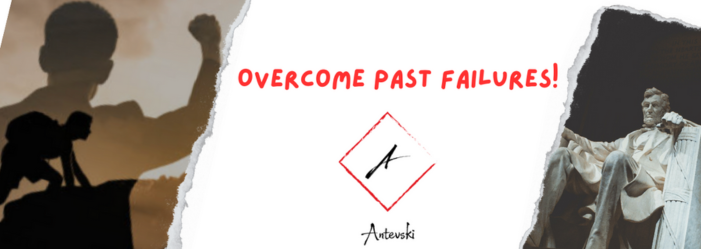
From Setbacks to Comebacks | Overcoming Past Failures

His mother passed away when he was nine years old.
When he was 17, his family was compelled to leave their home and farm, and he, like other males his age, was expected to labor to help support the family.
His employer went insolvent when he was 22 years old, and he lost his employment.
He stood for State Legislature at the age of 23 and finished eighth out of 13 contestants.
He borrowed money at the age of 24 to establish a company with a friend By the end of the year, the company had collapsed. The local sheriff had to take his property to pay off the debt, and then his partner perished, leaving him penniless, so he had to assume his partner's obligation.
At 25, he won a State Legislature seat after a previous loss.
His fiancée passed away before their wedding when he was 26, leading to a nervous collapse at 27.
At 29, he unsuccessfully ran for Speaker of the State Legislature.
At 34, he lost his first attempt at a US Congressional position.
At 35, he won a seat in Congress.
At 39, he was out of work when his Congressional tenure ended due to a one-term restriction rule.
At 40, he was rejected for a job as Commissioner of the General Land Office.
At 45, he lost a campaign for the US Senate by six electoral votes.
At 47, he lost the Vice-Presidential nomination at his party's National Convention.
At 49, he lost a second campaign for the US Senate.
After a lifetime of failure, disappointment, and loss, and still comparatively unknown outside his native state of Illinois, Abraham Lincoln was chosen the 16th President of the United States two years later, at the age of 51.
Of course, he was only in office for four years before being assassinated, but during those four years, President Lincoln successfully led the country through its greatest internal crisis, the Civil War, preserved the Union, abolished slavery, and rededicated the country to the ideals of equality, liberty, and democracy.
Lincoln refused to let his mistakes in the past define him. Instead, he used them as fuel to keep moving, trying, and ultimately succeeding.
Remember Lincoln's tale the next time you're discouraged by a loss or setback. If that doesn't work, consider the fact that he was once denied for the position of Commissioner of the General Land Office. Who, after all, wouldn't want that job?
Aside from the jokes, Lincoln's tale serves as a potent lesson that success does not require never failing. It's all about how you handle defeat. Do you shut up or continue on? Do you let your mistakes define you or use them to motivate you to try again? The choice is yours...
Next time when you want to quit first, ask yourself: How different would the U.S or the world be now if it just Abraham Lincoln had quit after his first, fifth, or tenth defeat?
"Failure is not the end of the road, but merely a bend in the journey towards success."
- ALEKSANDAR ANTEVSKI
Thank you for reading! You're the reason I love creating content and sharing it with the world. I couldn't do it without your support, and I hope to keep bringing you more of what you love. Stay tuned for even more exciting content coming your way!
Until then:
Connect, Convert, and Conquer!
DON'T MISS A THING
Please rest assured that I will only send you good stuff. No spam.
We will get back to you as soon as possible
Please try again later

